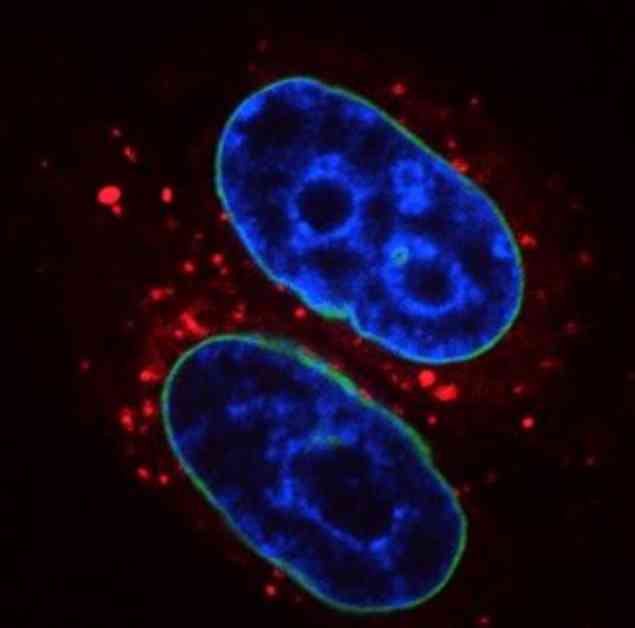A team of international researchers from the University of Oxford and Nanyang Technological University, Singapore, has made a groundbreaking discovery in the field of cell biology. They have identified a new process for repairing damaged DNA that could have significant implications for patients undergoing colorectal cancer treatments.
The researchers found that cells have a mechanism called nucleophagy, which is a form of autophagy that helps remove harmful DNA-protein lesions from the cell’s nucleus. This process ensures the stability of genetic material and promotes cell survival. One key protein involved in this process is TEX264.
When patients undergo chemotherapy for colorectal cancer, the drugs can cause DNA lesions to form. In response, the body activates nucleophagy, guided by TEX264, to remove and destroy these lesions. The researchers used a variety of advanced techniques and models to confirm the importance of nucleophagy in repairing damaged DNA.
This discovery opens up new possibilities for improving cancer treatments and patient outcomes in the future. Patients with high levels of TEX264 tend to have better responses to cancer treatments, particularly those with colorectal cancer. The findings could potentially lead to more effective therapies and better responses to treatment.
The lead investigator, Kristijan Ramadan, emphasized the significance of this discovery in understanding how cells repair DNA damage and respond to cancer treatments. The research team’s goal is to further explore the role of nucleophagy in the body’s response to different types of cancer treatments and ultimately use this knowledge to enhance chemotherapy responses for cancer patients.
Overall, this study sheds light on a new pathway for DNA repair and highlights the potential for improving cancer therapies through modulating autophagy activity. The researchers’ findings have been published in the journal Cell, marking a significant advancement in the field of cell biology and cancer treatment.
